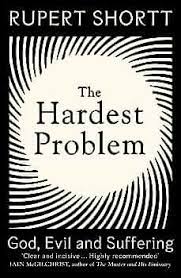
How can a supposedly all-powerful and all-loving God permit evil and suffering on a grand scale?
The question has assailed people across cultures at least as far back as the biblical Book of Job. To sceptics, it forms clinching evidence that all talk of providence is childish -- or even a dangerous delusion. Writing clearly and concisely but avoiding simplistic answers, Rupert Shortt argues that belief in a divine Creator is intellectually robust, despite apparent signs to the contrary. Having cleared the ground, he goes on to show how a Christian understanding, in particular, points the way forward through terrain where raw feeling, intellectual inquiry and the toughest trials of the spirit often overlap.
The Hardest Problem takes its place alongside the work of C. S. Lewis as an essential guide to one of life's deepest dilemmas for a new generation of readers.
The question has assailed people across cultures at least as far back as the biblical Book of Job. To sceptics, it forms clinching evidence that all talk of providence is childish -- or even a dangerous delusion. Writing clearly and concisely but avoiding simplistic answers, Rupert Shortt argues that belief in a divine Creator is intellectually robust, despite apparent signs to the contrary. Having cleared the ground, he goes on to show how a Christian understanding, in particular, points the way forward through terrain where raw feeling, intellectual inquiry and the toughest trials of the spirit often overlap.
The Hardest Problem takes its place alongside the work of C. S. Lewis as an essential guide to one of life's deepest dilemmas for a new generation of readers.



